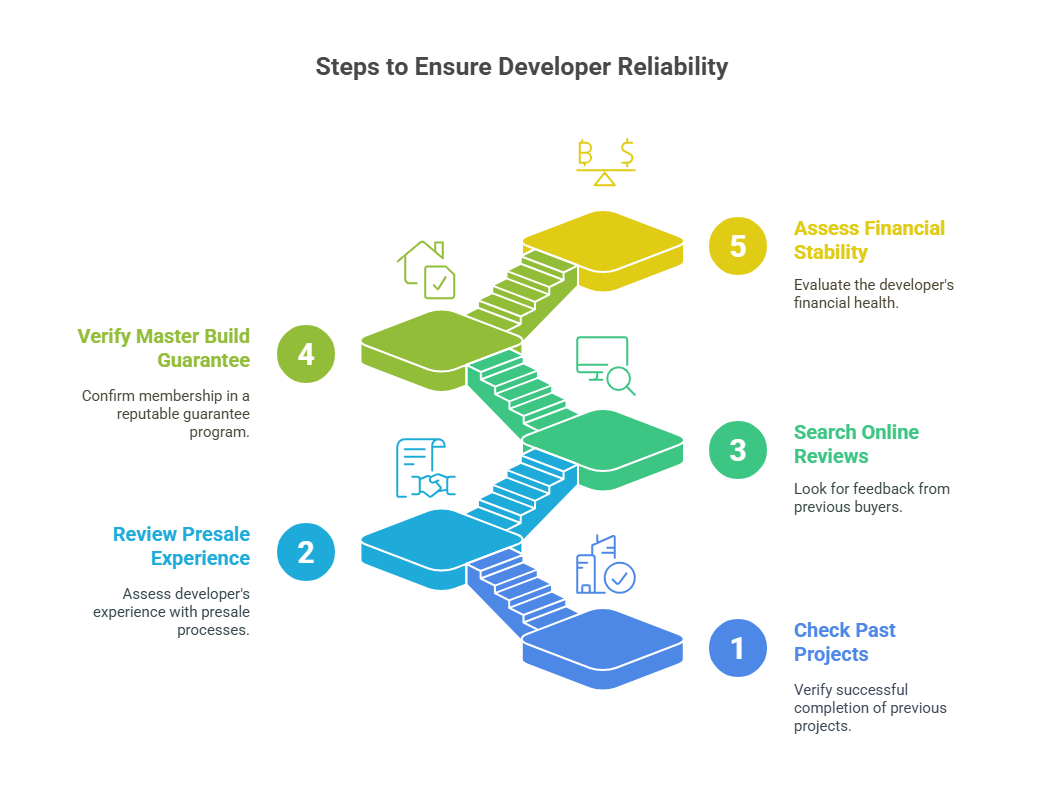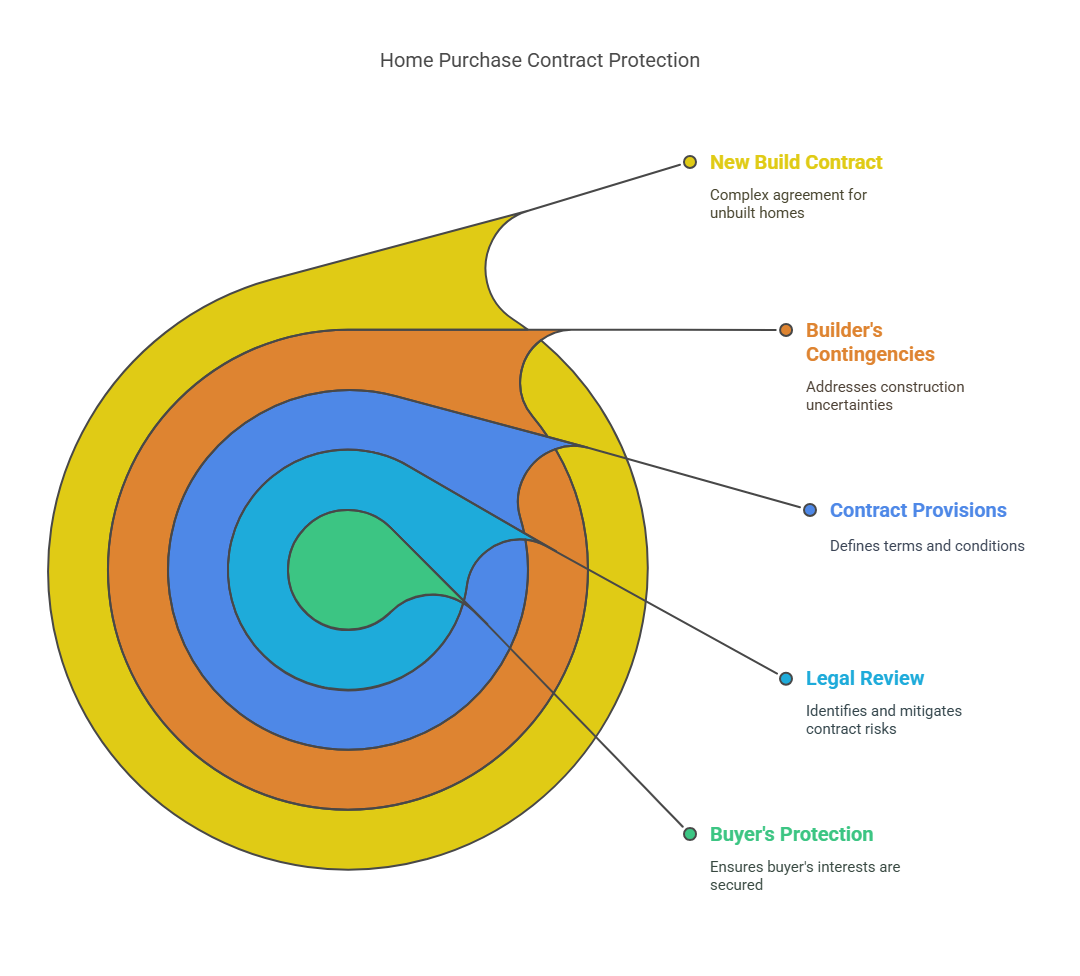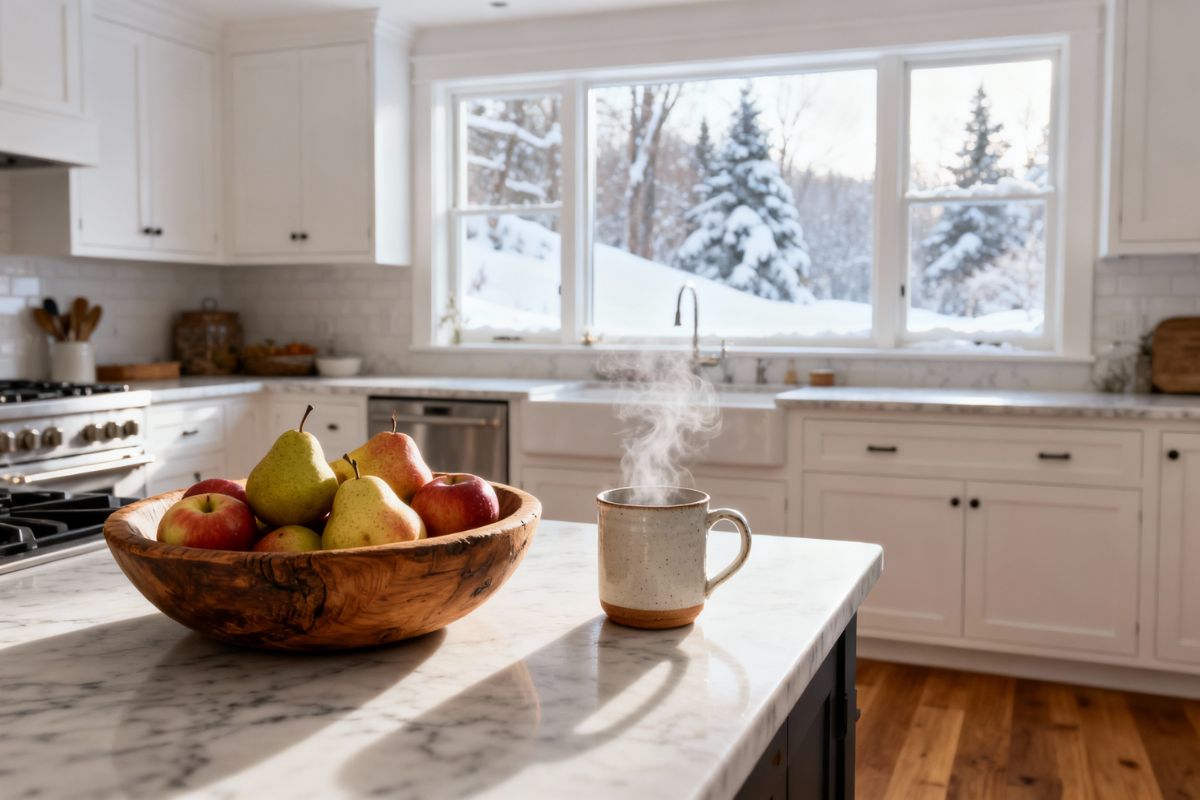Purchasing a Property Not Yet Built: Top Facts You Need to Know
.jpg)
Image Source: Canva
It's a risky endeavor seeking to invest in property that has yet to be built, but those with the intestinal fortitude to do so can often get rewarded for doing so with discounted prices, more input into the final design of the home, and the fact that you will have a clean slate upon which to build your life.
Nonetheless, it can also be fraught with issues that, if left unaddressed, could severely scupper your chances of entering the housing market in a calm and sensible fashion.
This article is here to help you navigate the various issues that could plague the process and how to get around them so that you come out on the other side with a brand new property and your sanity intact!
Research The Developer's Reputation
When buying a home that hasn't been constructed yet, one of the most crucial things you can do is thoroughly research the developer's track record and reputation.
Have they successfully built other properties in the area without significant issues?
Have they engaged in this kind of presale process before?
Do some online searches to see if you can find reviews from people who have purchased from the builder previously. Additionally, check if the construction company is part of the Master Build guarantee, which can ensure that their members are trustworthy and do what they say they will do.
You'll also want to enquire about how long the developer has been in business and what their financial standing looks like…an experienced builder with solid finances is less likely to run into problems that could delay or even halt construction.
This kind of due diligence is vital when purchasing a home that has already been built but has even greater importance if the property has yet to be constructed.

Know What You're Getting Yourself Into In Terms Of Property Type
If the home of your dreams is still a mere concept on the architect's drawing board, you must fully understand the specifics of what you're investing in. Beyond square footage and the number of rooms and bathrooms, inquire about details regarding building materials, layout, any HOA rules that might be applicable, and more.
You will likely be asked to sign off on any architectural plans, so take your time and analyze them closely, perhaps with a lawyer present. Also, consider alternative property types like tiny homes. Tiny homes are typically under 400 square feet, requiring you to live more minimally. They appeal to eco-conscious buyers and those wanting to downsize.
Review tiny home floor plans and models before committing to ensure they will realistically work for your needs. Just because a property is unconventional doesn't mean due diligence should be overlooked.
Carefully evaluating all specifications of the actual property to be built and the neighborhood helps guarantee it will meet your expectations when the time comes to move in.
Understand The Timeline And Delays Involved
Delays are something that most people think they can deal with, but when they actually occur, they can cause all sorts of unforeseen issues. However, you need to understand that construction setbacks and delays are very common, so going into the home-buying process with realistic expectations and contingency plans is absolutely, utterly imperative.
You should question the builder's estimated completion schedule and what factors would influence a potential delay. Many builders will provide a timeline, but take this as a cursory timeline rather than anything more concrete.
You should also understand that customization of fixtures, finishes, layouts, and more could extend the builder's schedule. Some developments let you select upgrades during the process, potentially leading to tweaks.
Just know that personal customizations could impact the completion date, even if you decide early on.

Consider Additional Costs And Fees That May Come Into Play
Costs, costs, and more costs…if it isn't by now, you should anticipate additional costs that could eat into your budget and emergency budget. For example, many charge lot premiums for specific locations within the development or to have a view of a green space or golf course.
You may opt for special custom features like kitchen upgrades or hardwood floors that also add to the total price. Additionally, since the home hasn't been built yet, you may have costs related to extending rate lock-ins on your mortgage, particularly if the project gets delayed.
Finally, remember that there will still be standard closing costs like legal fees and possibly real estate fees if they were involved. Since the property only exists on paper at first, you'll likely have to pay these in stages, such as at the signing of the contract, at construction commencement, and after completion.
That's three rounds of payments with several more if there are any additional points to consider.
Know That Construction Quality May Vary Depending On Numerous Factors
The level of craftsmanship and attention to detail can vary greatly depending on the builder, project budget, chosen materials, and other factors. Just because the floor plans or model home inspections impressively showcase what's possible doesn't guarantee consistent quality execution.
For example, some developers may cut corners to maximize profit margins across large neighborhoods, and you won't know about this until you move in and begin seeing the issues that arise.
Review contracts carefully around quality guarantees, warranties, and craftsmanship certifications to protect your investment should defects arise post-construction.
Contracts Can Be More Complex
Signing a binding contract to purchase a home that is merely a blueprint at this point requires nerves of steel since it can get more complicated than usual.
Builder contracts will contain more contingencies than those for resale homes to cover the construction process and ensure they are able to complete it without going out of business.
As a buyer of these kinds of properties, you want an experienced real estate lawyer by your side to thoroughly review any new build contract before you sign on the dotted line.
Some of the language around project timelines, your rights if construction is delayed for whatever reason, and builder liability for issues down the road…it can become very confusing very quickly for the average person with minimal experience in these matters.
You want someone well-versed in real estate law to analyze the fine print to determine whether provisions fully protect your interests.
For example, are completion dates clearly spelled out if the builder falls behind schedule? Who covers temporary housing costs if you can't move in on time? An adept property lawyer, while not cheap by any stretch of the imagination, will know the questions to ask and potential pitfalls to flag in any purchase agreement.
Allocating some of your budget on legal fees upfront will ensure that the contract covers you on critical issues and secures your investment.

Know The Deposit And Payment Structure
The deposit and payment procedures for new construction homes often differ substantially from resale purchases. Rather than providing one lump-sum deposit upfront and paying the remainder at closing, most builders structure installments tied to construction milestones.
For instance, you may submit a small initial deposit when signing the purchase agreement. Subsequent down payments then come due when the builder secures permits, breaks ground, frames the structure, tops off the roof, encloses and insulates, and finally completes the dwelling for occupancy and closing. The amounts may also vary based on each phase.
Early deposits typically range from smaller amounts. But installments ramp up into the five figures as the home takes shape, materials are purchased, and more builder capital gets tied up. Scrutinize the purchase agreement and ask direct questions about deposit timelines to avoid financial surprises. Budget for earlier and more significant amounts of capital needed to be compared to buying an existing property.
New construction introduces more upfront skin in the game for buyers through phased payments, so know what you're committing to at each stage of development. Failing to fund obligations fully can result in lost deposits and other penalties.
Consider The Resale Value And Demand
New construction homes can offer exciting opportunities to customize finishes and layouts to suit your needs perfectly. However, make sure also to consider long-term resale value and market demand when making interior design selections.
What delights your tastes today may not attract the majority of buyers down the road. Very contemporary-styled homes with unusual angular architecture, open floor plans, and ultra-modern finishes may not appeal to enough future owners. Those with extremely avant-garde tastes are fewer.
More traditional styles and layouts typically have broader appeal at resale. Don't let unique customization dreams lose sight of market norms. Of course, purchasing a new property of this nature provides extraordinary creative liberties if you plan to own it for the long haul. But if counting on selling at some point, carefully weigh customization options through an investment lens as well.
Consider bringing in an experienced local real estate agent early on to provide guidance around maximizing future marketability and value. Their input could save you money over time.
Investing your savings or taking out a loan to purchase something that doesn't actually exist in reality yet is something not for the faint of heart.
However, by understanding what you're getting yourself into and how to ensure you're covered in the case of adverse outcomes, you will be greatly rewarded with a home that you and only you will have lived in.






.jpg)


.jpg)